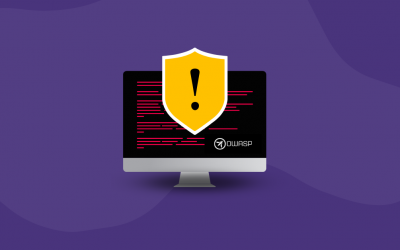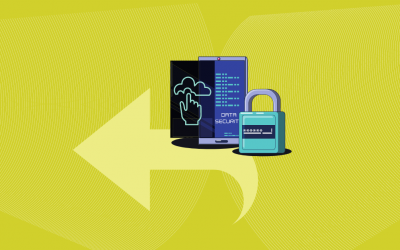Today, convenience is part of the priorities of both financial services providers and their clients. Thankfully, technology is making that achievable by availing the right solutions, including mobile banking apps. Additionally, the prevailing global crisis is partly responsible for the increased demand for online/mobile banking services.
As a result, most financial services providers have an option that customers can use to access various services at their convenience. Unfortunately, security continues to be a cause of concern for anyone planning to enroll in mobile/online banking services. You also need to understand that the average cost per breach within financial services as of 2019 stands at $5.86 million.
Also, according to Cybersecurity Guide, 75% of breaches in the financial sector involve malware and hacking, 18% are a result of accidental disclosure, 6% originate from insider threats, and 2% entail physical breaches. As such, financial services vendors cannot afford to overlook the importance of creating secure financial applications.
A secure application will safeguard the reputation of your organization and indicate that you value your clients’ privacy and the idea of building long-term relations. Data leakages, storage issues, and weak encryptions are some of the vulnerabilities you are likely to discover in FinTech applications.
Note that the hallmark of a trustworthy and responsible entity does not only lie in developing a secure FinTech app with data protection in mind. The reason is that by doing so, you will also give your FinTech app an edge over your competition. Here are a few tips for developing secure financial applications.
1. Prioritize The Use of Data Encryption Techniques
Using data encryption for users’ personal information, including social security numbers, names, and addresses, is not an option if your firm operates under U.S. legislation. The reason is that hackers target any financial data and any other information a firm receives during various financial transactions. These details include payment history and credit card numbers.
Encryption protects data during transmission. That is when information is highly vulnerable, meaning that intercepting data at this stage is easy. You can secure data transmission using different encryption algorithms. For instance, the U.S. Federal Government relies on AES.
2. Consider Building Infrastructure Security
Leveraging a robust IT infrastructure is a prerequisite for any FinTech app you are developing. That is why creating a secure infrastructure is critical at the initial stage. So, if your app runs on the public cloud, you need to engage a cloud vendor who complies with modern cloud security standards and one who appreciates the importance of building secure apps.
For example, AWS enterprise cloud can help you address the risk of DDOS attacks, and fast disaster recovery in the event of disruptions will not be a problem if you choose this option. You also need to ensure that cloud vendors comply with your internal standards when developing your FinTech app on cloud infrastructure.
3. Secure Your Daily Workflow
It is worrying to note that the human factor is responsible for almost half of all security breaches that most organizations suffer. Therefore, reducing the human factor and implementing measures to ensure a quick and easy recovery is not an option when developing FinTech apps. You should also consider introducing regular backups of all code, data, and files and practice security rehearsals as well.
You can practice security rehearsals by simulating potential emergencies and acting out how your employees will handle the same. Also, setting up clear and coherent access rights to prevent data breaches during every stage of the development process is advisable. You should also ensure that workers use corporate hardware on your premises and sign NDA agreements.
Presently, most financial firms undergo ISO 27001 Certification for high-security standards. Although the certification process and confirming the certificate are complex undertakings, acquiring it is an affirmation that your entity prioritizes the use of top-notch security practices.
4. Create A Secure Application Logic
The integration of security into each step of the application usage process is what building app logic with security in mind entails. Protecting each facet of your future application against imminent threats from data storage to password complexity is paramount. Some of the questions you need to answer during the early stages of the development of your FinTech app include;
- Who will have access rights to particular application features?
- What data will you store within the app?
- Is storing all credit and debit card numbers necessary?
Here are the best practices you need to consider when building secure FinTech solutions.
- Monitor every transaction and block any that appears suspicious.
- Consider introducing complex passwords.
- Implement the multi-step approval process for all critical operations.
- Adopt two-factor authentication.
- Maintain a log of each action the user performs, including their device information, geolocation, and IP address.
5. Focus on Web-Server Security
A web server is often the target for external attacks, and protecting users’ data with an HTTPS SSL certificate is a common practice nowadays. For that reason, omitting this step and being deemed trustworthy is not possible since most popular browsers will alert users if a site does not have such a certificate.
Another common practice is using VPN. Indeed, this option adds complexity at the setup phase, but it is worth the effort because it only grants access to hardware to users with a valid public key. You may also pay a high price for neglecting web server maintenance. As such, you should consider hiring a professional DevOps consultant if necessary in addition to running regular check-ups of all web server components.
Conclusion
Undoubtedly, the financial sector is harangued on all sides by cybercriminals partly because sensitive data is the fuel that runs the industry. Of course, regulators are always watching cyber events in the financial sector and remain ready to apply evermore onerous rules and regulations. On the other hand, clients using mobile apps and the internet expect a seamless, frictionless, cashless experience.All that is in the backdrop of a global shortage of cybersecurity skills in the financial services sector. In that case, security should be at the back of your mind when developing FinTech apps. Otherwise, your end product will fall short of the basic requirements for safeguarding users’ data. If you need more information on developing secure financial applications, contact us today!




